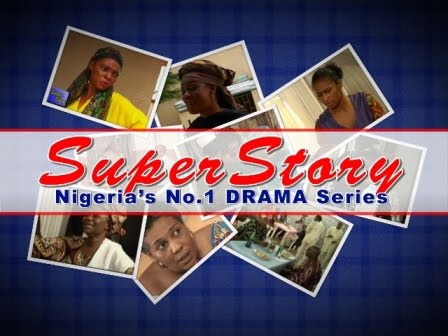The Ups and Downs of Nigerian Soap Operas: A Comprehensive Study
Quote from Oladosun Joshua Segun on December 2, 2024, 9:12 PM
The world of Nigerian Soap Operas once held viewers captivated with cliffhangers and emotional storylines, creating evenings filled with shared laughter and tears. In their golden days, these shows attracted millions of viewers across the nation, standing as a testament to the power of storytelling. However, as the entertainment industry evolved, these beloved dramas faced significant challenges.
In the late 90s and early 2000s, Nigerian soap operas surged in popularity. Programs like Fuji House of Commotion, Binta and Friends [Binta my daughter], Super Story, Papa Ajasco & Company, Tinsel and Checkmate pioneered the genre, drawing immense viewership. For example, Tinsel aired for over a decade, becoming a household name with millions tuning in every week. These shows ignited discussions about love, family dynamics, and social issues, influencing societal norms and perceptions which nightly entertainments depended on NTA, AIT, or STV.
Major production companies like DSTV and Golden Effects Pictures played crucial roles in the rise of these soap operas. With their commitment to quality and engaging content, they attracted diverse audiences. Successful series produced during this peak included The Johnsons and Everyday People. These shows showcased relatable characters and compelling plots that resonated with viewers across different age groups.
These soap operas did more than entertain; they shaped societal values. They introduced themes of love, betrayal, and moral choices, prompting conversations about relationships and cultural expectations. They served as mirrors reflecting the everyday lives of Nigerians, paving the way for new societal understandings.
As Nollywood films gained traction, the allure of traditional soap operas began to wane. The growth of Nollywood provided a broader range of content, with intense storylines and diverse genres appealing to the audience. Viewership statistics show a significant drop in soap opera ratings as more viewers flocked to the cinematic experience offered by Nollywood.
With the introduction of streaming platforms and mobile devices, audience preferences shifted dramatically. People began favoring on-demand content they could binge-watch at their convenience. This new way of consuming media diminished the habitual viewing of soap operas, leading to a decline in ratings and relevance.
Financial constraints plagued traditional soap operas. Many producers struggled to maintain the quality and frequency of episodes. As competition grew, the need for investing in better production values became essential, but the struggle to secure funding hampered progress.
Soap operas began adapting to changing times by launching web series on platforms like YouTube and Netflix. Shows like Skinny Girl in Transit and Rumour Has It have found their place in this new digital age. These online series often tackle contemporary issues, making them more relatable to today’s audience.
Modern Nigerian soap operas are evolving their storytelling methods. They explore fresh themes, including mental health, gender equality, and socio-economic challenges. This shift reflects the dynamic nature of Nigerian society and its changing norms.
Nigerian soap operas have also drawn inspiration from successful international formats. This influence is evident in the production styles and plot structures that have become prevalent. By adapting these formats, creators can reach broader audiences while maintaining cultural relevance.
There are many avenues for growth in the Nigerian soap opera industry. Collaborations between producers and international networks can foster innovation. New distribution models and multimedia projects could also attract a younger demographic eager for fresh content.
With the rise of technologies such as virtual reality (VR) and augmented reality (AR), the potential for immersive storytelling becomes a reality. These tools could modernize the viewing experience, creating new ways for audiences to engage with stories.
Remaining culturally relevant is vital for the future of Nigerian soap operas. By incorporating diverse perspectives and staying updated on societal changes, producers can ensure these shows resonate with current and future viewers.
Tips for Creating Engaging Content
- Focus on relatable characters and intricate plots.
- Address real-life issues to create a connection with the audience.
Strategies for Reaching Wider Audiences
- Utilize social media for marketing and audience engagement.
- Collaborate with influencers to expand reach.
Navigating the Changing Media Landscape
- Stay informed about emerging technologies.
- Experiment with new distribution channels to keep content fresh and accessible.
The journey of Nigerian soap operas reflects the broader changes in the entertainment industry. From their rise in cultural significance to their decline and subsequent transformation into web series, these shows continue to capture the hearts of many. As the genre adapts to modern demands and embraces new storytelling techniques, there remains an enduring appeal that hints at a bright future. Share your favorite soap operas and stay engaged in this evolving landscape of Nigerian entertainment!

The world of Nigerian Soap Operas once held viewers captivated with cliffhangers and emotional storylines, creating evenings filled with shared laughter and tears. In their golden days, these shows attracted millions of viewers across the nation, standing as a testament to the power of storytelling. However, as the entertainment industry evolved, these beloved dramas faced significant challenges.
In the late 90s and early 2000s, Nigerian soap operas surged in popularity. Programs like Fuji House of Commotion, Binta and Friends [Binta my daughter], Super Story, Papa Ajasco & Company, Tinsel and Checkmate pioneered the genre, drawing immense viewership. For example, Tinsel aired for over a decade, becoming a household name with millions tuning in every week. These shows ignited discussions about love, family dynamics, and social issues, influencing societal norms and perceptions which nightly entertainments depended on NTA, AIT, or STV.
Major production companies like DSTV and Golden Effects Pictures played crucial roles in the rise of these soap operas. With their commitment to quality and engaging content, they attracted diverse audiences. Successful series produced during this peak included The Johnsons and Everyday People. These shows showcased relatable characters and compelling plots that resonated with viewers across different age groups.
Tekedia Mini-MBA edition 16 (Feb 10 – May 3, 2025) opens registrations; register today for early bird discounts.
Tekedia AI in Business Masterclass opens registrations here.
Join Tekedia Capital Syndicate and invest in Africa’s finest startups here.

These soap operas did more than entertain; they shaped societal values. They introduced themes of love, betrayal, and moral choices, prompting conversations about relationships and cultural expectations. They served as mirrors reflecting the everyday lives of Nigerians, paving the way for new societal understandings.
As Nollywood films gained traction, the allure of traditional soap operas began to wane. The growth of Nollywood provided a broader range of content, with intense storylines and diverse genres appealing to the audience. Viewership statistics show a significant drop in soap opera ratings as more viewers flocked to the cinematic experience offered by Nollywood.

With the introduction of streaming platforms and mobile devices, audience preferences shifted dramatically. People began favoring on-demand content they could binge-watch at their convenience. This new way of consuming media diminished the habitual viewing of soap operas, leading to a decline in ratings and relevance.
Financial constraints plagued traditional soap operas. Many producers struggled to maintain the quality and frequency of episodes. As competition grew, the need for investing in better production values became essential, but the struggle to secure funding hampered progress.
Soap operas began adapting to changing times by launching web series on platforms like YouTube and Netflix. Shows like Skinny Girl in Transit and Rumour Has It have found their place in this new digital age. These online series often tackle contemporary issues, making them more relatable to today’s audience.

Modern Nigerian soap operas are evolving their storytelling methods. They explore fresh themes, including mental health, gender equality, and socio-economic challenges. This shift reflects the dynamic nature of Nigerian society and its changing norms.
Nigerian soap operas have also drawn inspiration from successful international formats. This influence is evident in the production styles and plot structures that have become prevalent. By adapting these formats, creators can reach broader audiences while maintaining cultural relevance.

There are many avenues for growth in the Nigerian soap opera industry. Collaborations between producers and international networks can foster innovation. New distribution models and multimedia projects could also attract a younger demographic eager for fresh content.
With the rise of technologies such as virtual reality (VR) and augmented reality (AR), the potential for immersive storytelling becomes a reality. These tools could modernize the viewing experience, creating new ways for audiences to engage with stories.
Remaining culturally relevant is vital for the future of Nigerian soap operas. By incorporating diverse perspectives and staying updated on societal changes, producers can ensure these shows resonate with current and future viewers.

Tips for Creating Engaging Content
- Focus on relatable characters and intricate plots.
- Address real-life issues to create a connection with the audience.
Strategies for Reaching Wider Audiences
- Utilize social media for marketing and audience engagement.
- Collaborate with influencers to expand reach.
Navigating the Changing Media Landscape
- Stay informed about emerging technologies.
- Experiment with new distribution channels to keep content fresh and accessible.
The journey of Nigerian soap operas reflects the broader changes in the entertainment industry. From their rise in cultural significance to their decline and subsequent transformation into web series, these shows continue to capture the hearts of many. As the genre adapts to modern demands and embraces new storytelling techniques, there remains an enduring appeal that hints at a bright future. Share your favorite soap operas and stay engaged in this evolving landscape of Nigerian entertainment!
Uploaded files:


